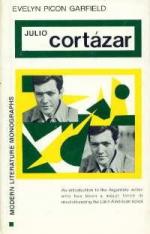|
This section contains 12,482 words (approx. 42 pages at 300 words per page) |

|
SOURCE: Tandeciarz, Silvia. “Writing for Distinction?: A Reading of Cortázar's Final Short Story, ‘Diario para un Cuento’.” Latin American Literary Review 29, no. 58 (July-December 2001): 73-100.
In the following essay, Tandeciarz views “Diario para un Cuento” as representative of Cortázar's recurring thematic interests and determines the influence of his experiences in Peronist Argentina on his fiction.
[T]he logic of identity-formation involves distinctive associations and switching between location, class and the body, and these are not imposed upon subject-identity from the outside, they are core terms of an exchange network, an economy of signs, in which individuals, writers and authors are sometimes but perplexed agencies. A fundamental rule seems to be that what is excluded at the overt level of identity-formation is productive of new objects of desire.
—Peter Stallybrass and Allon White, The Politics and Poetics of Transgression
If Julio Cortázar is so widely read today...
|
This section contains 12,482 words (approx. 42 pages at 300 words per page) |

|


